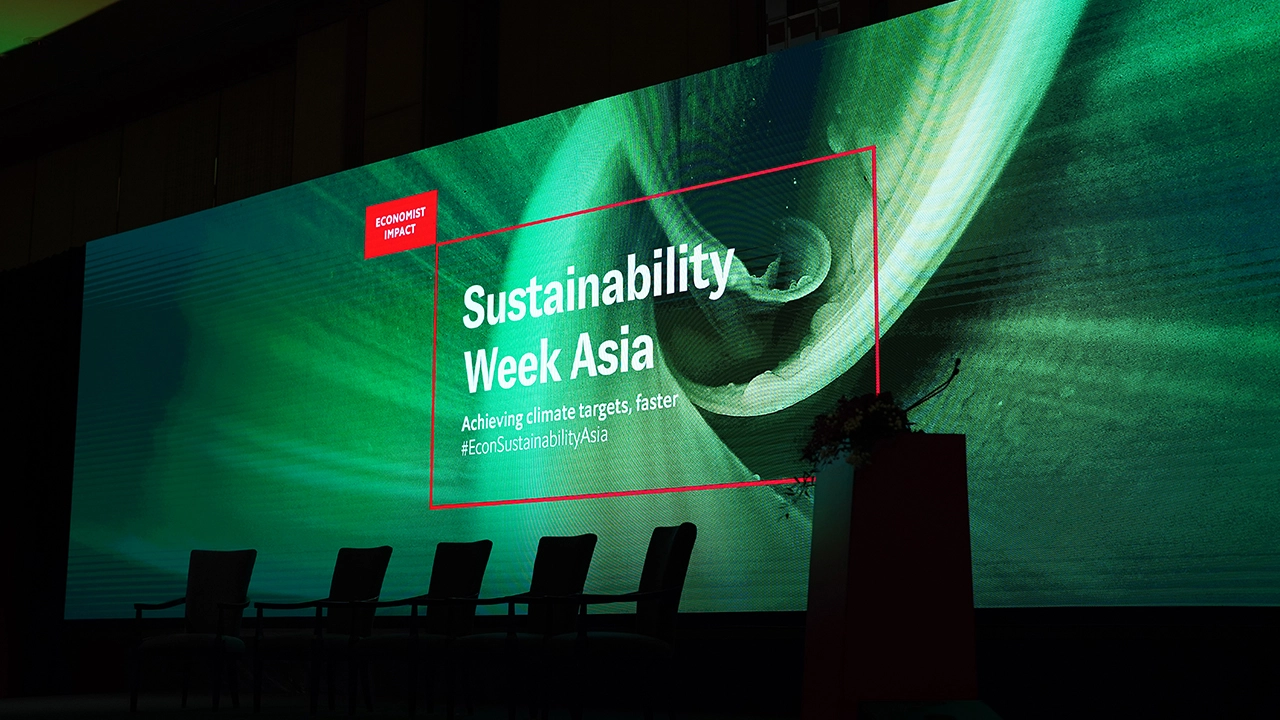มหาวิทยาลัยการจัดการสิงคโปร์ (Singapore Management University) สถาบันการศึกษาแนวหน้าของทวีปเอเชีย เข้าร่วมงานเสวนาระดับโลก “3rd Annual Sustainability Week Asia” โดย Economist Impact ร่วมขับเคลื่อนความยั่งยืนภายใต้แนวคิด ‘Achieving climate targets, faster’ โดยมีผู้นำทั้งในภาคธุรกิจ ภาครัฐ ผู้เชี่ยวชาญด้านวิทยาศาสตร์และสิ่งแวดล้อม ตลอดจน ตัวแทนจากองค์กรระหว่างประเทศ และ NGOs ทั่วโลกเข้าร่วมมากกว่า 1,000 ราย จัดขึ้นเพื่อแลกเปลี่ยนความคิดเห็นและมุมมองเชิงลึก รวมถึงแนวทางแก้ไขปัญหาสภาพภูมิอากาศและสิ่งแวดล้อม ร่วมผลักดันการพัฒนาที่ยั่งยืน พร้อมรับมือสถานการณ์วิกฤติ และการปล่อยคาร์บอนสุทธิเป็นศูนย์ (Net Zero) โดยหัวข้อสัมมนาในครั้งนี้จะมีตั้งแต่การผลักดันตลาดคาร์บอนในเอเชีย การเปลี่ยนผ่านสู่ธุรกิจสีเขียว ตลอดจนการดำเนินนโยบายการเงินเพื่อความยั่งยืนและเป็นมิตรกับสภาพแวดล้อม
โดย มหาวิทยาลัยการจัดการสิงคโปร์ (SMU) ได้ส่งผู้เชี่ยวชาญเข้าร่วมการสัมมนา 3 หัวข้อด้วยกัน ได้แก่ การส่งเสริมตลาดคาร์บอนในเอเชีย (Fostering Carbon Market in Asia) โดย นิกกี้ เคมป์ ( Nikki Kemp) ผู้อำนวยการศูนย์ Singapore Green Finance Centre มหาวิทยาลัยการจัดการสิงคโปร์, การเปลี่ยนผ่านการลงทุนสู่ความยั่งยืน (Financing the Transition) โดยผู้ช่วยศาสตราจารย์ ฮาว เหลียง (Assoc.Prof. Hao Liang) และการปกป้องระบบนิเวศและความหลากหลายทางชีวภาพ (Climate risk: protecting ecosystems and biodiversity) โดยศาสตราจารย์วินสตัน เชา (Prof.Winston Chow) ศาสตราจารย์ด้านภูมิอากาศในเมือง Pillar Lead, SMU Urban Infrastructure ; Lee Kong Chian Fellow
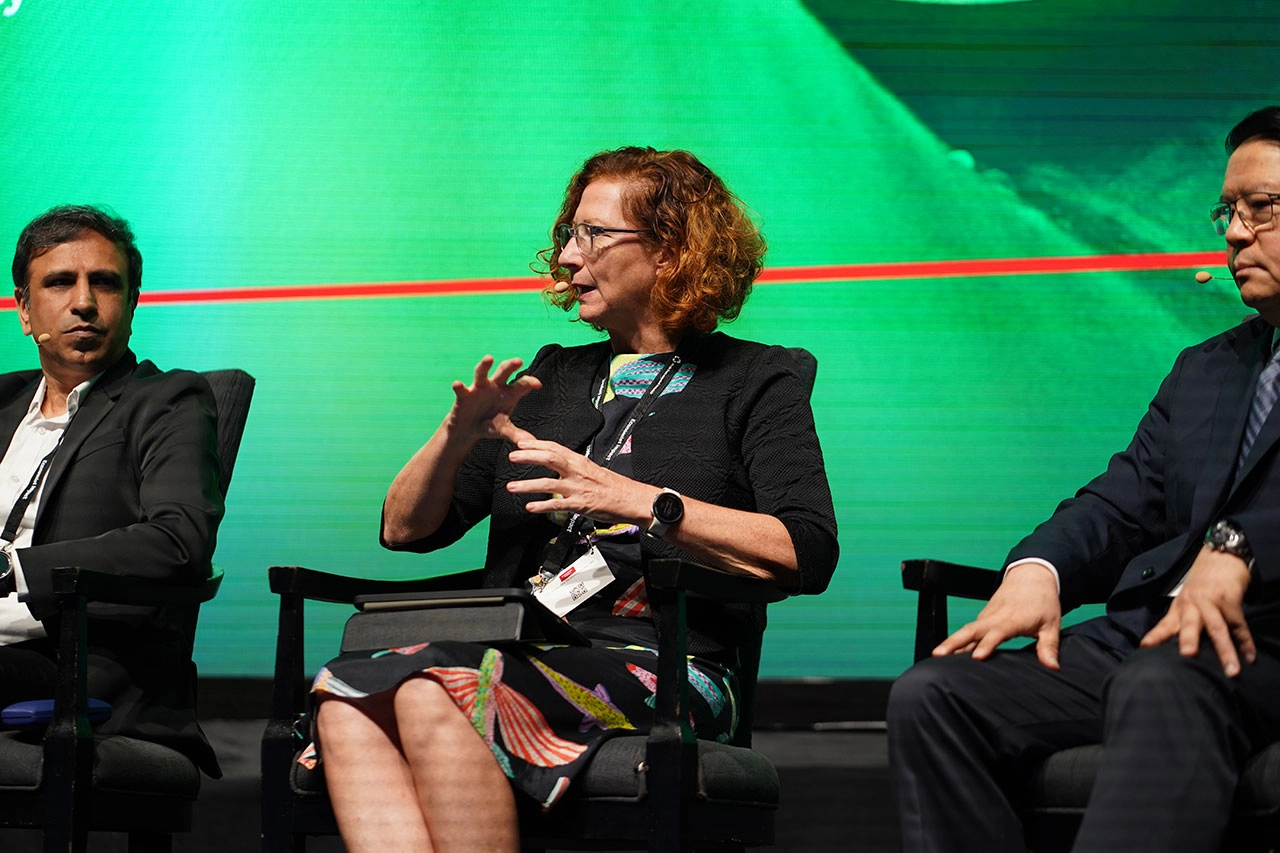
สำหรับการสัมมนาภายใต้หัวข้อ การส่งเสริมตลาดคาร์บอนในเอเชีย (Fostering Carbon Market in Asia) โดย นิกกี้ เคมป์ (Nikki Kemp) ว่าด้วยเรื่องของความกังวลด้านการปล่อยมลพิษ กว่าสองทศวรรษที่ผ่านมาโลกได้มีการปล่อยคาร์บอนเพิ่มขึ้นกว่า 46% สาเหตุจากการเติบโตของภาคอุตสาหกรรมในเอเชียเป็นส่วนใหญ่ การดำเนินงานด้านการบริหารจัดการ การดำเนินงานด้านการเงินและภาษีจึงเป็นหนึ่งในกลไกที่จะช่วยแก้ไขปัญหาดังกล่าว โดยนิกกี้ เคมป์ ให้ข้อคิดเห็นว่า “การลดการปล่อยคาร์บอนเป็นสิ่งที่สำคัญมาก เราได้มีหลักฐานทางวิทยาศาสตร์ที่ชี้ให้เห็นว่าเรากำลังเผชิญหน้ากับปัญหาทางสิ่งแวดล้อมที่รุนแรงที่จะกระทบกับวิถีชีวิตของมนุษย์อย่างหลีกเลี่ยงไม่ได้ เพราะฉะนั้นการรับมือกับสถานการณ์นี้อาศัยความรับผิดชอบจากหลายภาคส่วนด้วยกัน ภาคธุรกิจ และการกำหนดนโยบายถือเป็นปัจจัยที่สำคัญมากสำหรับการปรับตัวเพื่อรับมือกับวิกฤติในครั้งนี้ แต่ในทางปฏิบัติเองก็ยังมีข้อกังวลอยู่บ้าง เช่น ความน่าเชื่อถือของตลาด โครงสร้างของตลาดคาร์บอน ผู้มีอำนาจในการกำหนดนโยบาย หรือความโปร่งใส เป็นต้น โดยวิธีการแก้ไขอาจจะต้องมีการกำหนดมาตรฐาน หรือการสร้างข้อตกลงร่วมกัน เพราะการแก้ปัญหาข้างต้น เป็นสิ่งที่สำคัญและจำเป็นต่อโลกของเรามาก”
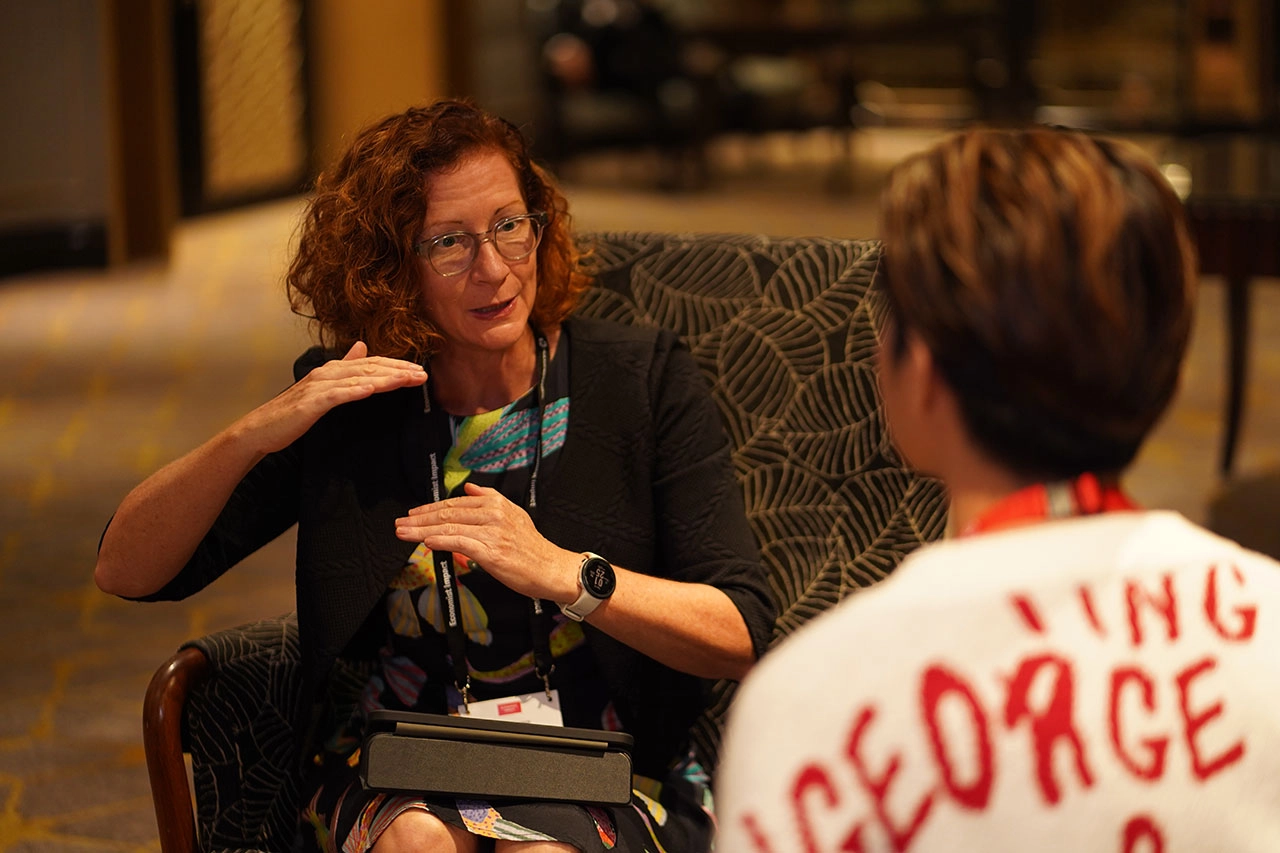
โดย นิกกี้ เคมป์ เองก็แสดงความกังวลเพิ่มเติมสำหรับปัญหาสภาวะภูมิอากาศและสิ่งแวดล้อมอีกด้วย “สถานการณ์สิ่งแวดล้อมของเราในตอนนี้อยู่ในจุดที่น่ากังวลและมีความจำเป็นที่จะได้รับการแก้ไขอย่างเร่งด่วน สำหรับภาคประชาชนเองสามารถให้ความร่วมมือได้ง่ายๆ เช่น ปรับพฤติกรรมในชีวิตประจำวัน และสำหรับภาคธุรกิจเองก็สามารถใช้ความเชี่ยวชาญของธุรกิจของท่านเพื่อช่วยให้เราทุกคนสามารถผ่านภาวะวิกฤตินี้ไปได้” เคมป์ กล่าวเสริม
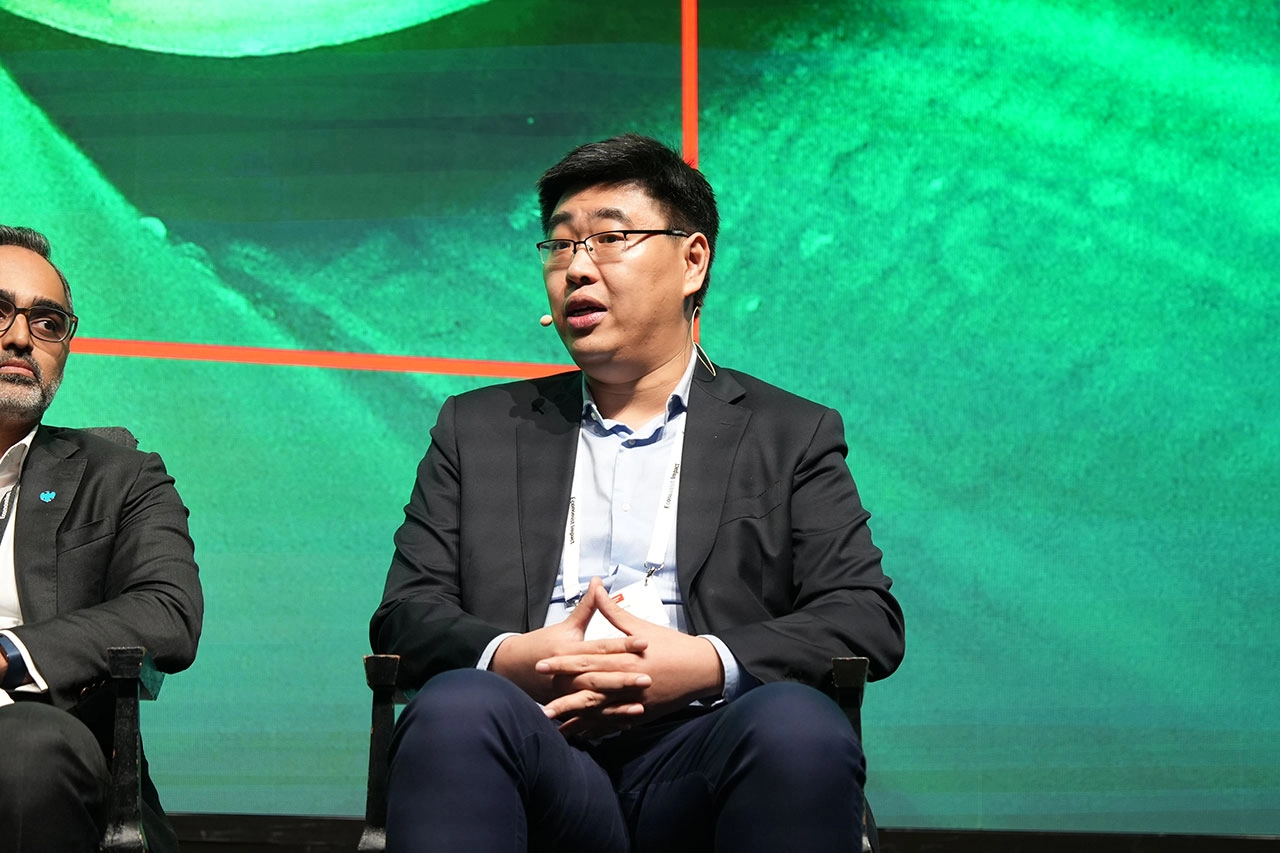
อีกหนึ่งหัวข้อสัมมนาที่น่าสนในคือ การเปลี่ยนผ่านการลงทุนสู่ความยั่งยืน (Financing the Transition) โดยทางมหาวิทยาลัยการจัดการสิงคโปร์ (SMU) เองก็ได้มีผู้ช่วยศาสตราจารย์ ฮาว เหลียง (Assoc.Prof. Hao Liang) เข้าร่วมพูดคุยในประเด็นหัวข้อนี้เช่นกัน ด้วยตลอดระยะเวลาสองปีที่ผ่านมานักลงทุนทั่วโลกได้มีการทุ่มเงินลงทุนไปมากกว่า 1 ล้านล้านดอลลาร์สหรัฐในกองทุน ESG (กองทุนที่ลงทุนในบริษัทที่คำนึงถึงสิ่งแวดล้อม) โดยการเปลี่ยนแปลงนี้เป็นหนึ่งปัจจัยสำคัญที่กระตุ้นให้เกิดการดำเนินธุรกิจที่ยั่งยืน “การรับมือกับปัญหาสภาพภูมิอากาศที่เรากำลังเผชิญอยู่นี้อาจจะฟังเหมือนดูห่างไกลจากการดำเนินการด้านการเงินการลงทุน เช่น การระดมทุน แต่จริงๆ แล้วกลับเป็นเครื่องมือที่สำคัญมากที่ทำให้เกิดการเปลี่ยนผ่านสู่ความยั่งยืน โดยอาศัยกลยุทธ์และนโยบายทางการเงิน เช่น ตราสารหนี้สีเขียว (Green Bond) เป็นต้น แต่อย่างไรก็ตามในทางปฏิบัติจริง ก็ยังต้องอาศัยการทำงานร่วมกัน ทั้งภาครัฐ ภาคธุรกิจ และ สถาบันทางการเงิน เพื่อให้การเปลี่ยนผ่านสู่ความยั่งยืนนี้บรรลุซึ่งเป้าหมายได้”
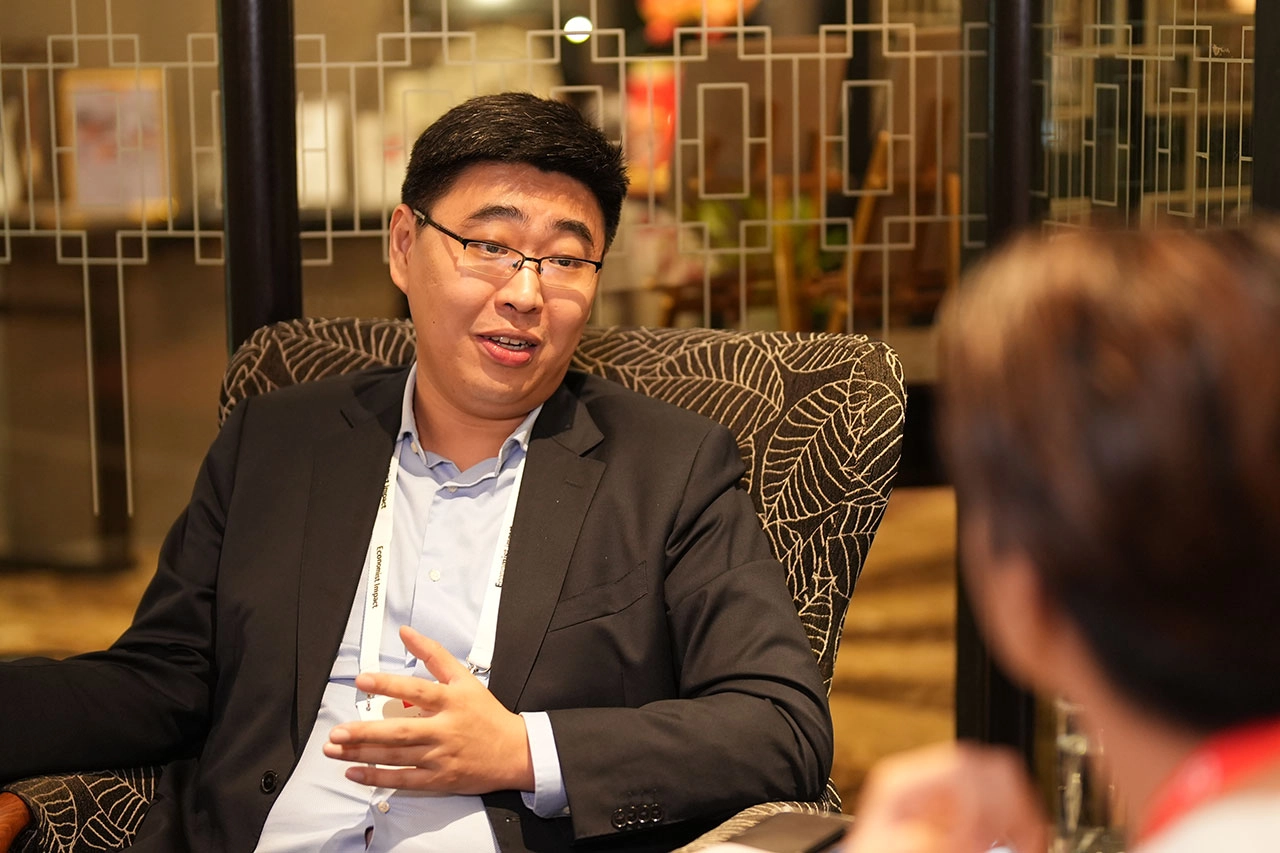
“มหาวิทยาลัยการจัดการสิงคโปร์ของเราเอง ก็ได้มีการจัดทำหลักสูตรว่าด้วยความยั่งยืนหรือ Green Finance เป็นต้น ด้วยเราเองมีความเชี่ยวชาญในการใช้ความรู้ในด้านเศรษฐศาสตร์และการเงินเพื่อความยั่งยืน อีกทั้งประเทศสิงคโปร์เองก็ยังเป็นศูนย์กลางการเงินสีเขียว (Green Finance Center) ในภูมิภาคเอเชียแปซิฟิกที่ให้คุณค่ากับแนวคิดทางการเงินและการลงทุนในโครงการที่มีผลกระทบที่เป็นประโยชน์ต่อสิ่งแวดล้อมและการเติบโตทางทรัพยากรที่ยั่งยืนอีกด้วย” ผู้ช่วยศาสตราจารย์ ฮาว เหลียง กล่าวต่อท้าย
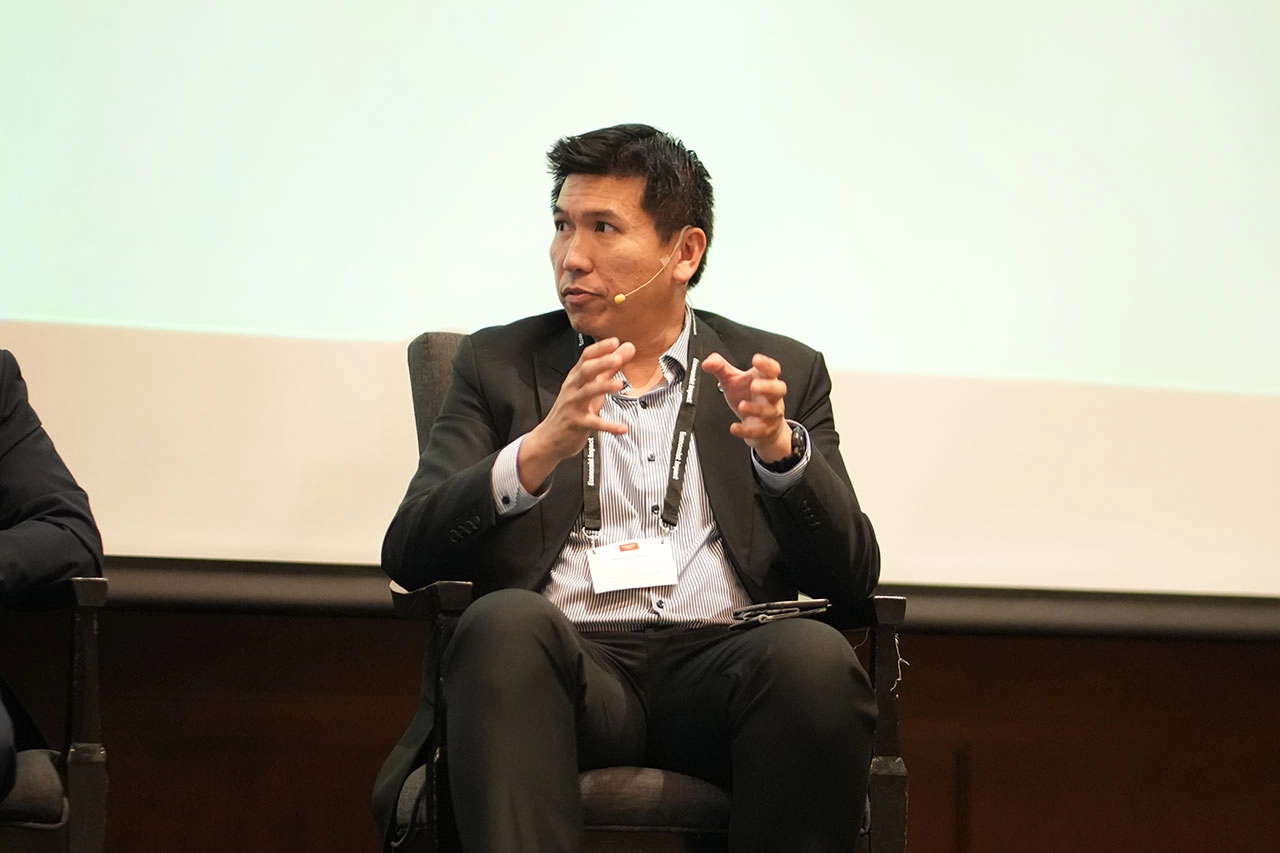
และปิดท้าย Sustainability Week Asia ในปีนี้ด้วยการเสวนาในหัวข้อ การปกป้องระบบนิเวศและความหลากหลายทางชีวภาพ (Climate risk : protecting ecosystems and biodiversity) โดยศาสตราจารย์วินสตัน เชา (Prof.Winston Chow) ศาสตราจารย์ด้านภูมิอากาศในเมือง มหาวิทยาลัยการจัดการสิงคโปร์ก็ได้นั่งพูดคุยในประเด็นนี้ด้วย ซึ่งภูมิภาคเอเชียเองก็เป็นหนึ่งภูมิภาคที่จะได้รับผลกระทบจากการเปลี่ยนแปลงของสภาพแวดล้อมมากที่สุด การผลักดันและสร้างความตระหนักรู้เรื่องการปกป้องระบบนิเวศและความหลากหลายทางชีวภาพเป็นสิ่งที่สำคัญที่จะช่วยลดผลกระทบครั้งนี้ได้ “การสร้างความตระหนักรู้และแรงจูงใจในภาคธุรกิจให้มีการส่งเสริมความหลากหลายทางชีวภาพ รวมไปถึงการให้ความสำคัญกับระบบนิเวศนั้นเป็นสิ่งจำเป็น ตัวอย่างที่จับต้องได้มากที่สุดในตอนนี้คงหนีไม่พ้นปัญหามลพิษทางอากาศที่เกิดขึ้นในกรุงเทพมหานครและอีกหลายพื้นที่ในประเทศไทย จะเห็นได้ว่าเพียงแค่คุณภาพของอากาศก็สามารถกระทบชีวิตประจำวันของเราได้ โดยเฉพาะในกลุ่มเปราะบางหรือประชากรที่มีปัญหาด้านสุขภาพ เป็นต้น โดยประเด็นปัญหานี้ก็สามารถช่วยให้บรรเทาลงได้ ด้วยความอุดมสมบูรณ์ของระบบนิเวศ ดังนั้นจึงเป็นสิ่งจำเป็นมากที่ทั้งภาคธุรกิจ ภาคประชาชน และผู้กำหนดนโยบายจะต้องให้ความสำคัญและให้ความร่วมมือในประเด็นนี้” ศาสตราจารย์วินสตัน เชา แสดงความคิดเห็น

ศาสตราจารย์วินสตัน เชา กล่าวเสริมถึงมหาวิทยาลัยการจัดการสิงคโปร์ต่อท้าย “สำหรับมหาวิทยาลัยการจัดการสิงคโปร์ก็ให้ความสำคัญมากๆ สำหรับประเด็นนี้ เราได้มีการสอนในหลักสูตรทั้งในระดับปริญญาตรี และปริญญาโท เพื่อให้นักศึกษาของเราเห็นความสำคัญของความยั่งยืน ในด้านของงานวิจัยเองเราก็ตระหนักถึงความสำคัญในประเด็นปัญหาด้านสิ่งแวดล้อมและการเปลี่ยนแปลงสภาพภูมิอากาศเช่นเดียวกัน หรือแม้กระทั่งการจัดการหรือการออกแบบเมือง (Urban Design) จุดประสงค์เพื่อการประหยัดพลังงาน การอยู่ร่วมกันของระบบนิเวศและความหลากหลายทางชีวภาพ รวมถึงเพื่อยกระดับคุณภาพชีวิตของผู้คนในเมืองอีกด้วย”

สำหรับ มหาวิทยาลัยการจัดการสิงคโปร์ (Singapore Management University) เป็นสถาบันการศึกษาแนวหน้าที่มุ่งเน้นการศึกษาในภาคธุรกิจและการเงิน อีกทั้งยังได้รับการยอมรับในฐานะสถาบันการวิจัยระดับโลก และยังมีการพัฒนาหลักสูตรให้ตรงกับความต้องการของตลาด อย่างเช่น Master of Sustainability หลักสูตรใหม่ที่มุ่งเน้นด้านความยั่งยืนซึ่งเป็นสิ่งที่สำคัญมากในภาคธุรกิจในยุคปัจจุบัน โดยมหาวิทยาลัยการจัดการสิงคโปร์ เองก็ยังมี SMU Overseas Centre Bangkok ที่จะคอยให้ความช่วยเหลือผู้ที่มีความสนใจที่จะศึกษาต่อที่ตั้งอยู่ในประเทศไทยอีกด้วย
(EN) PR News
Singapore Management University (SMU), a leading business and finance University in Asia, participated in the global event "3rd Annual Sustainability Week Asia" organized by Economist Impact, driving sustainability under the theme 'Achieving climate targets, faster.' The event featured leaders from business sector, government, scientific and environmental experts, as well as representatives from international organizations and NGOs worldwide, with over 1000 participants. It aimed to exchange ideas and deep perspectives, including solutions to climate and environmental crises, sustainable development, addressing crises, and striving for Net Zero carbon emissions.
Singapore Management University (SMU) contributed experts to participate in three panels: "Fostering Carbon Market in Asia" by Ms. Nikki Kemp, Director of the Singapore Green Finance Centre ; "Financing the Transition" by Associate Professor Hao Liang; and "Climate risk : protecting ecosystems and biodiversity" by Professor Winston Chow, Professor of Urban Climate; Pillar Lead, (Urban Infrastructure).
For the panel on "Fostering Carbon Market in Asia" by Ms Nikki Kemp, it addressed the opportunity for the carbon market to reduce greenhouse gas emissions. Over the past two decades, global carbon emissions have increased by over 46%, primarily due to industrial growth in Asia. Operational management, financial operations and taxation are among the mechanisms to solve these issues. Ms Nikki Kemp said, "Reducing carbon emissions is crucial. Scientific evidence indicates that we are facing severe environmental crises that will inevitably impact human life. Reducing carbon emissions requires responsibility from various sectors, including businesses, finance and policymakers, as they play a vital role in adapting to this crisis. The carbon market can be effective because it is a results-based financing tool. However, to have market reliability, we need a carbon market framework, effective policies and transparency. Solutions may involve setting standards for high quality carbon credits or collaboration that reduces fragmentation. Addressing these issues is crucial and necessary for our economic, community and environmental well-being."
Ms Nikki Kemp also expressed additional concerns regarding environmental issues, stating, "the climate crisis is alarming and urgent. Individual action such as adjusting daily behaviors can help. Business expertise and investment can help. Education can help individuals, business and investors make decisions that will contribute to solving the crisis. This is why the Singapore Green Finance Centre’s work is so important. "
In the panel titled "Financing the Transition," Associate Professor Hao Liang from Singapore Management University (SMU) also contributed to the discussion. Over the past two years, global investors have poured trillions of dollars into ESG funds. This shift is a significant factor driving sustainable business practices.
"Addressing the environmental challenges we face may seem distant from financial investment operations such as fundraising. However, finance and funding are actually crucial tools driving the transition to sustainability. Utilizing financial strategies and tools ,such as Green Bonds, are essential. However, practical implementation requires collaboration among government, businesses, and the financial sector to achieve sustainable transitions," said Liang.
"At Singapore Management University, we have developed a curriculum on sustainability, including Green Finance. We specialize in using economic and financial knowledge for helping in sustainability issues." Liang concluded.
On the last day of Sustainability Week Asia 2024, Professor Winston Chow from Singapore Management University (SMU) led a discussion on "Climate risk: protecting ecosystems and biodiversity." This topic is particularly relevant to Asia, which is most affected by environmental changes. Raising awareness and promoting the protection of ecosystems and biodiversity are crucial for mitigating these impacts.
Creating awareness and motivation in the business sector to promote biodiversity, as well as emphasizing the importance of environmental protection, is essential. Currently, one of the most pressing issues is air pollution in Bangkok and several other areas in Thailand. It's evident that air quality alone can significantly impact our daily lives, especially for vulnerable populations or those with health issues. Addressing this problem can alleviate it by utilizing the richness of ecosystems. Therefore, it's imperative for both the business sector and policymakers to prioritize and collaborate on this issue," said Professor Chow.
Professor Chow further emphasized SMU's commitment to this cause, stating, "For SMU, this issue is of utmost importance. We incorporate sustainability into our undergraduate and graduate programs to highlight its significance. In our research efforts, we recognize the importance of addressing environmental issues and climate change. This extends to urban design, aiming for energy efficiency, integrated environmental systems, and biodiversity conservation, ultimately enhancing the quality of life for urban residents."
Singapore Management University (SMU), is a leading University focusing on business and finance. It is also recognized as a global research center and has developed courses to meet market demands. For instance, the SMU Master of Sustainability programme ; an interdisciplinary programme that develops you as a sustainability leader, which emphasizes sustainability, is crucial in today's business landscape.
Additionally, SMU also launched the SMU Overseas Centre Bangkok in 2023 to deepen existing partnerships and collaborations while forming new ones with local academic institutions, businesses and government agencies.
